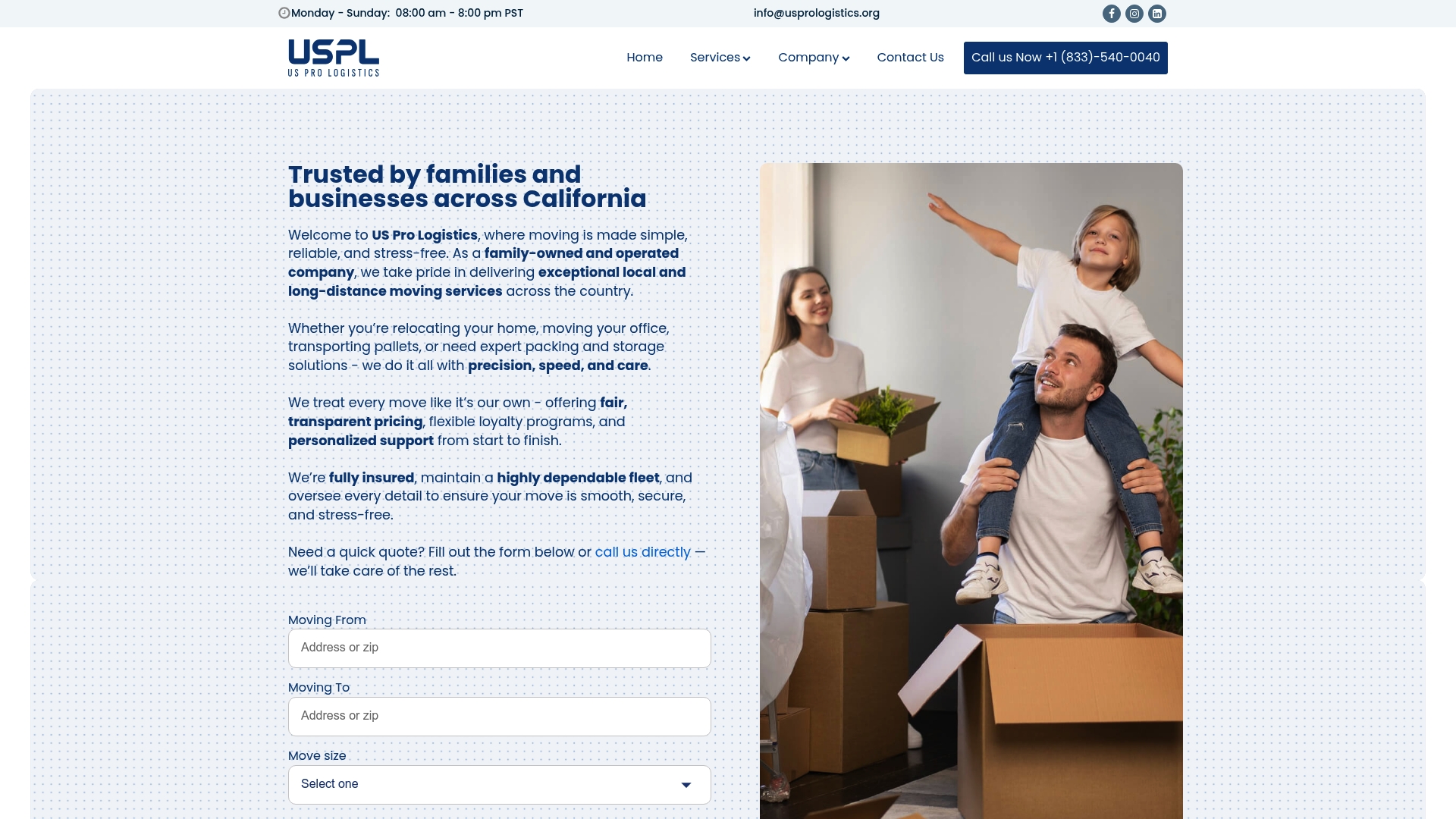
Moving for a new job means so much more than packing boxes and changing your address. Over 50 miles is the benchmark that defines a real geographic work move, according to official guidelines. Many assume relocation is just a physical switch, but the real shift happens in your daily life, network, and career growth—sometimes in ways you do not see coming.
| Takeaway | Explanation |
|---|---|
| Relocation is a significant life transition. | Changing jobs and locations involves adapting personally and professionally to new environments and cultures. |
| Evaluate all financial implications thoroughly. | Analyze cost of living, salary changes, and potential expenses before making a decision to relocate. |
| Consider personal and professional compatibility. | Ensure the new job aligns with long-term career goals and personal satisfaction to facilitate a smooth transition. |
| Networking opportunities expand with relocation. | Relocating introduces new contacts and mentors, enhancing career growth and industry connections. |

|
| Flexibility is crucial in the relocation process. | Adaptability helps manage the emotional and logistical challenges of moving for a job, leading to better outcomes.
Relocating for a new job involves physically moving your residence to a different geographic location specifically to pursue professional opportunities. According to Lawrence Berkeley National Laboratory, permanent relocation is typically defined as a period of 12 months or longer when an employee establishes a new work and living environment.
Relocating for employment is more complex than simply changing an address. It represents a comprehensive life transition that encompasses personal, professional, and logistical transformations. Geographic mobility means adapting to new professional landscapes, potentially different cultural environments, and significant lifestyle adjustments.
Key characteristics of job-related relocation include:
The decision to relocate for work involves carefully weighing multiple factors. While professional advancement might be compelling, individuals must consider broader implications. Relocation expenses, potential salary adjustments, cost of living differences, and personal comfort in a new environment are critical evaluation points.
The U.S. Office of Personnel Management provides guidance suggesting that a position in a different geographic area is typically defined as being 50 or more miles from the previous worksite. This distance benchmark helps professionals understand the scale of potential professional transitions.
Ultimately, relocating for a new job is a nuanced personal decision that extends far beyond mere physical movement. Explore our comprehensive guide on professional moves to understand how strategic planning can transform this challenge into an exciting career opportunity.
Relocating for work represents a strategic professional development opportunity that can significantly accelerate career growth and personal advancement. According to research in the International Journal of Environmental Research and Public Health, geographic mobility offers professionals unique opportunities to expand their skill sets, experience diverse work cultures, and position themselves for leadership roles.
Professional relocation transcends simple job changes by providing comprehensive opportunities for career enhancement. Moving to a new location often means accessing previously unavailable professional networks, industries, and skill development environments. These transitions enable professionals to:
Geographic mobility dramatically expands professional networking possibilities. Each relocation introduces professionals to new industry connections, potential mentors, and innovative work environments. Strategic moves can position individuals at the intersection of emerging industry trends, creating opportunities that might not exist in their original location.
Moreover, relocating demonstrates to potential employers a willingness to take calculated risks, adapt to new challenges, and commit to professional growth. Employers often view candidates with relocation experience as more versatile, independent, and potentially more valuable to their organizations. Discover strategies for maximizing career potential through professional moves and transform geographic transitions into powerful career advancement opportunities.
Ultimately, relocating for a job is not just about changing addresses but about strategically positioning oneself for long-term professional success. The willingness to embrace geographic mobility can be a powerful differentiator in today’s competitive job market.
The relocation process is a complex, multi-stage journey that requires strategic planning, financial preparation, and careful logistical management. While each individual’s experience varies, the fundamental framework remains consistent across professional relocations.
To help you quickly understand the main stages and elements involved in relocating for a new job, the following table outlines the key steps of the relocation process as described in the article.
| Stage | Description | Key Considerations |
|---|---|---|
| Initial Planning & Assessment | Evaluate job offer, location, and readiness for a move | Analyze cost of living, family adaptation, career growth |
| Logistical Preparation & Execution | Coordinate moving details and documentation | Secure housing, arrange services, manage paperwork |
| Financial & Personal Transition | Adjust to new location emotionally and financially | Stabilize finances, adapt to environment, establish routine |
Professional relocation begins with comprehensive evaluation and decision-making. Individuals must assess job opportunities, financial implications, and personal readiness for geographic transition. This initial stage involves critical considerations such as:
Once the decision to relocate is made, professionals enter a detailed preparation phase. Systematic planning becomes crucial in managing the transition effectively. This stage typically involves coordinating multiple complex elements such as housing arrangements, transportation of personal belongings, employment documentation, and potential temporary accommodations.
Key logistical components include:
The final stage of relocation focuses on personal adjustment and financial stabilization. Professionals must navigate the emotional and practical challenges of establishing themselves in a new environment. Learn more about seamless moving strategies to ensure a smooth transition that minimizes stress and maximizes opportunity.
Successful relocation requires a holistic approach that balances practical logistics with personal adaptability. By understanding the process as a comprehensive journey of professional and personal transformation, individuals can approach geographic mobility with confidence and strategic insight.
Moving for employment requires comprehensive evaluation beyond simple geographic relocation. Professionals must approach this significant life transition with strategic planning and holistic assessment of personal and professional implications.
Financial preparedness represents the foundational element of successful employment-related relocation. Professionals must conduct thorough cost-benefit analyses that extend beyond immediate salary comparisons. This involves:
This table summarizes the primary financial and personal considerations you should evaluate before deciding to relocate for a new job, helping to organize and compare the most significant factors mentioned in the article.
| Consideration | Financial Factors | Personal/Professional Factors |
|---|---|---|
| Compensation & Benefits | Total compensation, bonus, long-term growth | Skill development, career trajectory |
| Cost of Living | Housing, taxes, daily expenses | Quality of life, lifestyle fit |
| Relocation Expenses | Moving costs, temporary accommodation, travel | Stress, family adjustment |
| Job/Location Compatibility | Benefit variations (healthcare, retirement, etc.) | Company culture, networking opportunities |
| Risk Management | Financial safety nets, contingency planning | Willingness to adapt, personal aspirations |

Beyond financial metrics, professionals must evaluate the broader alignment between job opportunity and personal aspirations. Comprehensive career compatibility involves understanding how the new position integrates with long-term professional objectives. This requires deep reflection on career trajectory, organizational culture, and personal development opportunities.
Key personal assessment factors include evaluating:
Employment-related relocation inherently involves calculated risk. Professionals must develop robust contingency plans that provide flexibility and security during transition. Explore comprehensive moving strategy resources to minimize potential disruptions and maximize transition success.
Successful employment relocation demands a multifaceted approach that balances objective analysis with personal intuition. By maintaining comprehensive perspective and strategic flexibility, professionals can transform geographic mobility into meaningful career advancement.
Job relocation dynamics have undergone significant transformations in recent years, driven by technological advancements, economic shifts, and evolving workforce preferences. According to research from the Brookings Institution, interstate migration has been steadily declining, reflecting complex changes in professional mobility.
Digital connectivity has fundamentally reshaped traditional relocation paradigms. Remote work technologies have introduced unprecedented flexibility, allowing professionals to pursue career opportunities without mandatory physical relocation. This technological revolution has led to:
Contemporary job relocation trends reflect broader economic transformations. Workforce demographics are experiencing significant restructuring, with younger professionals demonstrating different mobility preferences compared to previous generations. The Federal Reserve Bank of St. Louis highlights that modern workers prioritize:
Professionals and organizations must continuously adapt to these evolving relocation landscapes. Explore strategic moving insights for modern professionals to navigate these complex transition environments effectively.
Understanding job relocation requires recognizing it as a dynamic, multifaceted process influenced by technological, economic, and personal factors. By maintaining flexibility and strategic awareness, professionals can effectively leverage geographic mobility as a powerful career development tool.
You want your job relocation to be more than a simple move. You deserve a strategic transition that supports both your professional ambitions and personal comfort. After reading about the detailed challenges of employment-related moves—like financial uncertainty, planning complexities, and adapting to new environments—are you looking for a trustworthy partner who truly understands these concerns? Review the logistics and expert strategies for stress-free moving on our professional relocation insights page.

US Pro Logistics specializes in supporting every step of your relocation. From personalized planning and reliable moving services to secure storage and transparent pricing, we are committed to making your next career move seamless. Why wait? Make your transition as smooth as possible. Start your journey with a trusted, family-owned team that values your goals. Visit US Pro Logistics now and request your personalized moving quote.
Relocating for a new job involves moving your residence to a different geographic location primarily for professional opportunities, often leading to significant lifestyle and career changes.
When relocating for work, individuals should consider costs such as moving expenses, cost of living differences, potential salary adjustments, and financial implications associated with the new location.
Preparation for relocation involves initial planning and assessment, including analyzing the job offer, evaluating your potential financial investment, arranging logistics such as housing and transportation, and preparing for personal transition in the new area.
Benefits of relocating for a job include accessing new professional networks, gaining exposure to different organizational cultures, enhancing skill sets, and positioning oneself for potential career advancement and leadership roles.
USDOT 3664256 This number is required for any company that operates commercial vehicles in interstate commerce (across state lines). It helps identify and track the safety performance and compliance of transportation companies.
MC 1268070 This number is specifically for companies involved in the transportation of goods or passengers for hire across state lines. It’s necessary for carriers operating in the moving industry and ensures they are authorized to operate as interstate carriers.